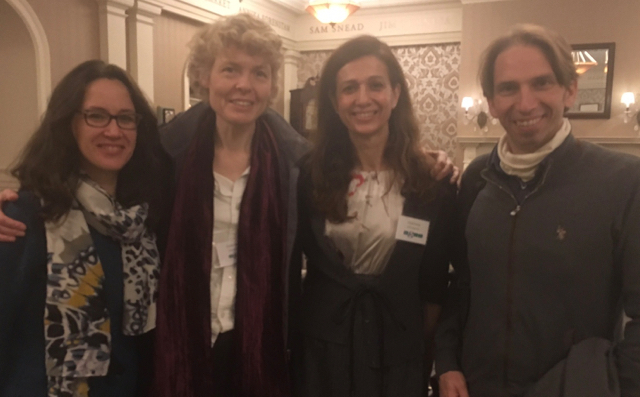CONTINUING RESEARCH BY DR. PARARA: THE MANY ASPECTS OF THE "CLASSICAL BOUQUET"
November 19, 2017

Advancing her research project on the recently discovered volume Classical Bouquet, Professor Polyvia Parara has already presented three papers at international conferences.
Advancing her research project on the recently discovered volume Classical Bouquet, Professor Polyvia Parara has already presented three papers at international conferences.
In summer 2016, Professor Parara presented a paper entitled "Classical Bouquet: Cities and Cultural Landscapes from Past to Present" at the IASCC International Conference "Heritage in Transition" in Ermoupolis, Syros, Greece (July 27th to July 29th). The paper emphasized the connection of the classical past to modern identities by showing how the Classical Bouquet (Klassiki Anthodesmi) of Elisavet Contaxaki exemplifies the concept of cultural identity and invites the international audience to explore Greece's cultural beauties and humanistic values.
In the fall of 2016, examining the controversial personality of Contaxaki, Professor Parara presented at the 12th International Conference of Cretan Studies at Heraklion, Crete (September 21st to September 26th) her paper on “The Journey of Elisavet Contaxaki’s ‘Classical Bouquet’ from Crete to Washington D.C.: historical and political context”. This paper discussed the ideological orientation of the volume and shed light on Contaxaki’s political and diplomatic involvement with American officials and Ottoman authorities in the revolutionary Crete of the 1850s.
This fall (2017), at the 25th Biennial International Modern Greek Studies Association Symposium, November 2-5, 2017 at Stockton University, Professor Parara presented her paper on "Elisavet Contaxaki’s Classical Bouquet: A Forgotten Key to Re-examining Controversial Cretan Revolutions". The paper discusses excerpts of the “Classical Bouquet” that refer to ideology and revolution and that shed light on domestic and external politics and diplomacy. Professor Parara argues that our reading of Contaxaki, who is traditionally seen either as an agent of the British foreign policy or simply as a “Turkophile,” is in need of a drastic re-evaluation.
Professor Parara’s ongoing research is bringing to light the many aspects of this unique volume which lay unrecognized for one hundred and sixty years in the collections of the Smithsonian Institution. The Classical Bouquet is a valuable primary source for classical reception, literature, visual art, sociopolitical history, diplomacy and gender studies.

